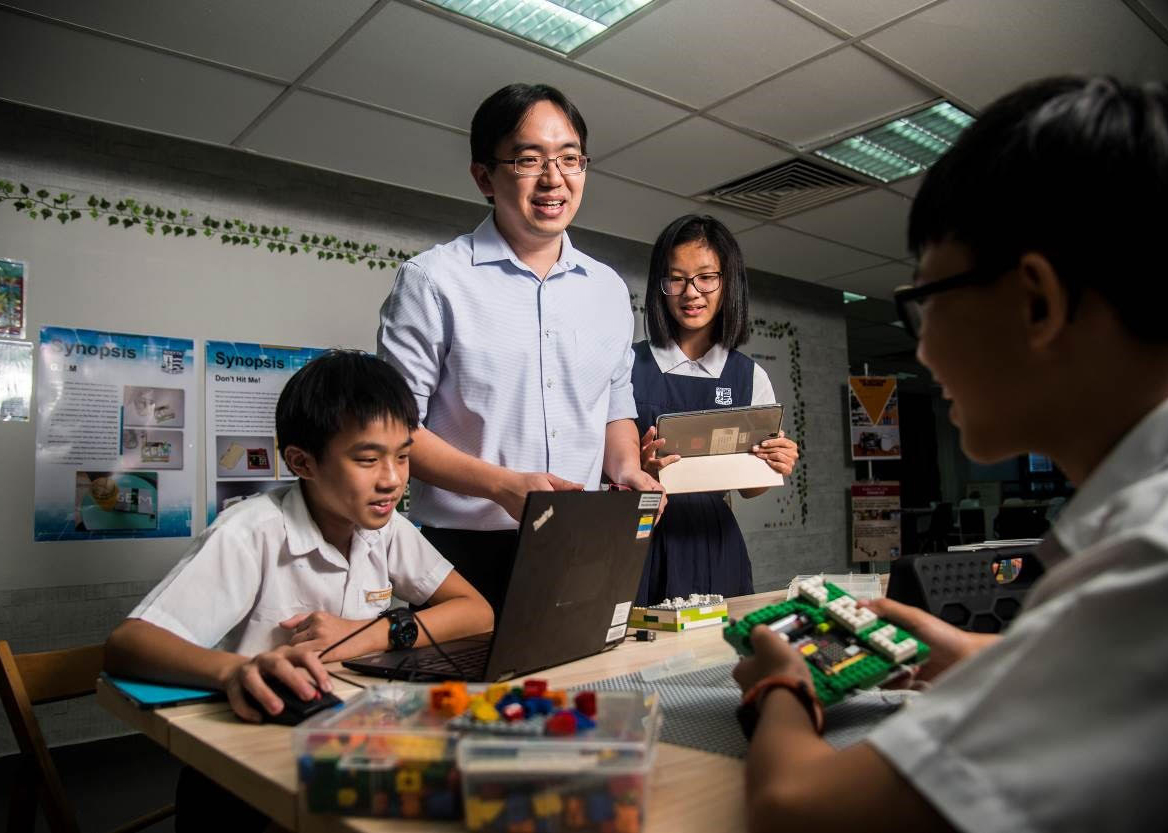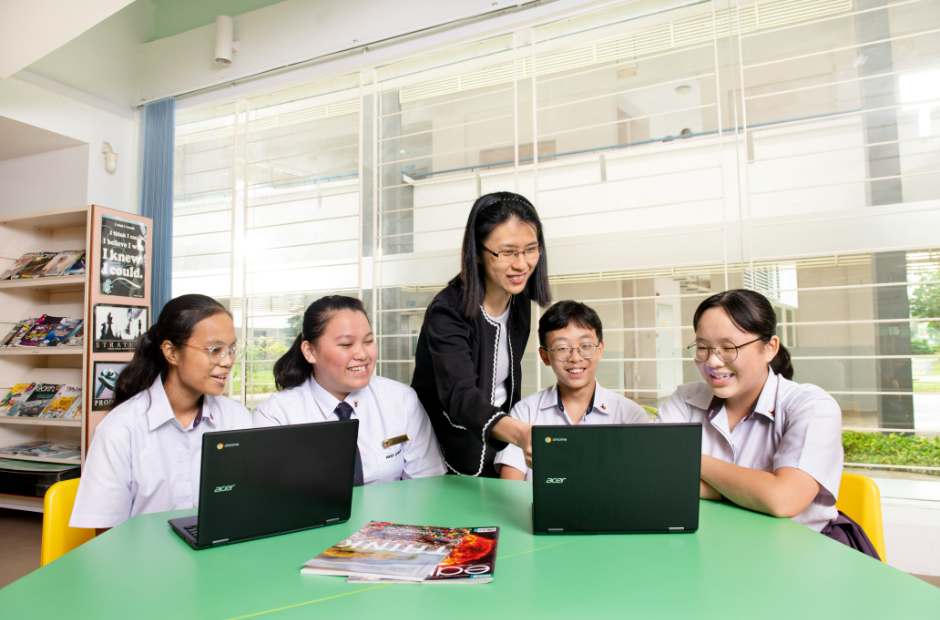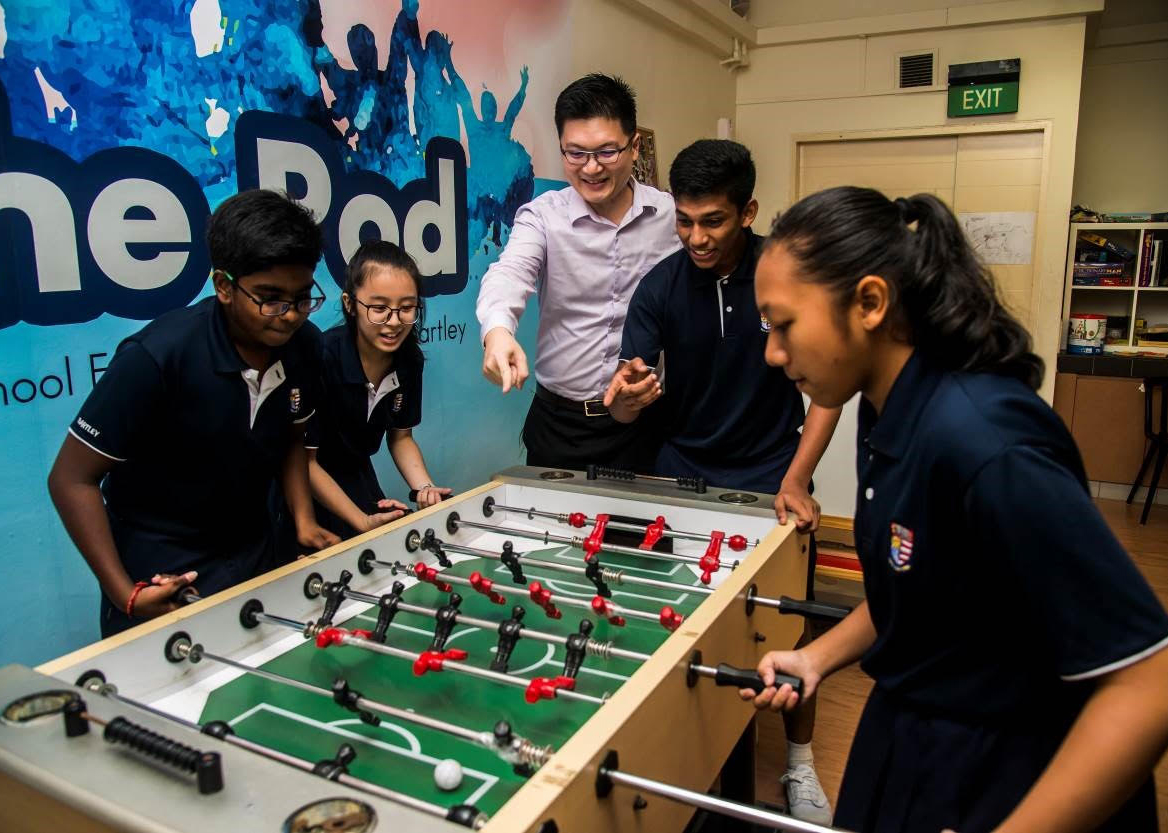Mr Chew Ansheng, Victor, Rosyth School, President’s Award for Teachers 2019 Recipient
Victor Chew’s Chinese classes are full of games, jokes and even Mandarin pop songs.
In designing his lessons, he was taking a leaf out of his own experience in learning Chinese, remembering how he had preferred to learn the language by understanding its application rather than through repetitive exercises.
“I had my ups and downs studying Chinese in primary school, and only put more effort into learning the language in secondary school,” Victor says. “When I was asked to teach Chinese, I thought, ‘Maybe I can breathe fresh life into [learning] this language, perhaps I can better understand students who struggle.’”
Breathing fresh life into Chinese
In his early days, Victor found it challenging to enthuse students. “Chinese is a living language, for them to speak and apply in everyday life. I realised I had to be more proactive in engaging them, creating scenarios, using a gamified approach and facilitating group work.
That’s when the results started to show,” Victor says. “I saw the students becoming more motivated to learn the language. Every day that my students step into class, my hope is for them to have a fun learning experience.”
Discovering his interests and passions
A decade ago, Victor found himself at a crossroads. Armed with a degree in computing and working as a coder for a tech company, he was having second thoughts. He thought about his four years of university and what he cherished most from that time was spending three days every week volunteering with children from less privileged families, including those with special needs and some in hospice care. “That was more satisfying than my job at the time. I decided that I wanted to do something that could impact lives.”
Another memory prompted his career switch to teaching.
“In primary school, I was mischievous and didn’t do my homework,” he says. “My new form teacher in Primary 5 told me, ‘I don’t care what other teachers say about you. I want you to start afresh, from today onwards.’”
By offering to wipe the slate clean and show confidence in Victor, she left a lasting impression.
At every point, Victor makes an effort to connect with his students – whether in his Chinese and ICT lessons or during recess.
“I make it a point that we don’t just talk about what’s happening in class. We also talk about the things the students like or what’s happening at home,” he says.
Victor once had a student who had been throwing tantrums in class. After speaking to him, he found out that the student’s mother was going for an operation, and that his behaviour was likely related to anxiety.
“I told him it’s okay to worry and feel concerned, but not okay to misbehave in class,” he says. “He was soon back to his normal self. It’s important for teachers to let the students know we care for them.”
Motivating students to build on their knowledge
In engaging and motivating students, Victor always helps them see the ‘why’ behind the learning. Again, in a fun way.
He piloted the Roszania programme for Primary 3 and 4 students, which was inspired by the Kidzania career role-playing theme park.
“Sometimes, students cannot relate what they are learning to real life. So we try to bridge that gap and help students discover their interests and passions,” says Victor. Students get “passports” that contain various activities, based on a list of job roles such as astronomer, designer, statistician, engineer, ambassador and coder. In finding out more about the professions that interest them and doing activities, students collect stamps in their passports, which they can then exchange for achievement badges. A similar philosophy pervades Victor’s cyber wellness and ICT-based learning programmes in school.
Students in the school’s computer enrichment programme learn coding and work with mini computers such as Micro Bits to develop prototypes to solve real-life problems. They also present these inventions at maker fairs or industry events.
The inventions include Don’t Hit Me, an accident-prevention system intended to warn both pedestrians, especially the elderly, and drivers; and Pigeon Chaser, a pestcontrol device that sounds an alarm if it detects pigeons visiting an eating place – a solution originally intended to work in the school canteen.
“This year, we are having all the Primary 5 students do a Micro Bit project. But we don’t teach tech and coding in isolation – they are actually tied to the Math curriculum,” says Victor. “We also hope our students don’t just learn and become consumers of tech, but actually become creators who use their skills productively.”
In fact, through its School Advisory Committee, the school is seeking industrial partners to fine-tune the Pigeon Chaser prototype, so that it can be produced and implemented in other schools. It is also designating a new “maker space” for students to use, where they come up with new ideas and work on ICT projects together.
Through these programmes, Victor hopes students can find their passions, embrace a try-fail-try attitude, and carry that confidence forward with them.
“The pride I have in my students is not based on grades,” says Victor. “It is in seeing them grow as individuals and understanding that learning does not stop at the end of an examination.”






